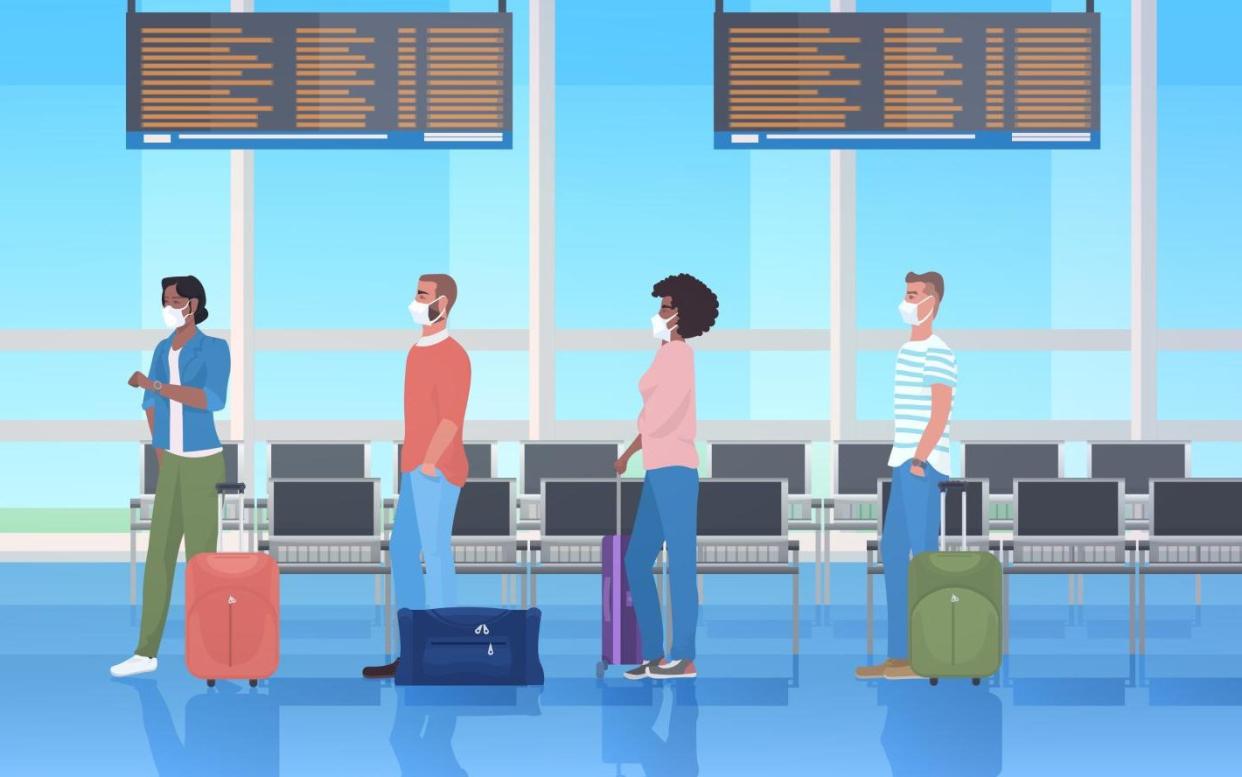Will I be able to go on holiday this summer if I haven't been vaccinated?

In recent months it has moved from a hypothetical to a near-enough certainty that vaccine passports will be the key to opening up our holidays in the post-lockdown era.
A flurry of countries have outlined plans for accepting proof of vaccination as a way for holidaymakers to enter this summer, restriction-free.
Later this month the EU will vote on legislation for a bloc-wide vaccination certification system, to unlock travel between the countries by the summer.
However, the likes of Greece and Spain have suggested they will forge ahead with vaccine passports even if such a system is not reached across the EU. Greece has already agreed a ‘travel bubble’ with Israel, which is leading the way when it comes to vaccinating its population.
Other countries, including France and Belgium, have thus far been more hesitant to agree to vaccine certification until there is more evidence that vaccination reduces transmission.
This week, Spain’s Tourism Minister Fernando Valdés said that Spain was in “discussions” with the UK and told Bloomberg: “For us the British market is our main market. But obviously since we are a member of the European Union, the solutions have first to be part of the discussions in the EU.
“And obviously if that cannot be reached, we will be thinking of other corridors like green corridors with third countries that can help us restart tourism flows.”
But discussions over vaccine passports as a means to reopen international travel have opened up a question among those in younger age brackets, as well as those who cannot or will not get a jab: what happens if you haven’t received two doses of the jab by the time summer comes round?
When will I get my vaccination?
Currently, anyone aged 60 and above can expect a call to receive the vaccine. The NHS says if you are not eligible yet: “Wait to be contacted. The NHS will let you know when it is your turn to have the vaccine. It is important not to contact the NHS for a vaccination before then.”
It is expected that over 50s will receive the letter in the coming weeks, and those in their forties could be called up before the end of March. Those in the lowest age brackets will be the last to be contacted to receive their first jab.
The Government says all adults should have received their first dose of the vaccine by July 31. However, with the 12-week gap between first and second doses, it might be autumn before adults in their 20s or 30s are fully vaccinated.
Who will be able to travel with vaccine passports?
It is likely that any vaccine certification will only be issued to people who have received the full course of a recognised Covid-19 vaccine – so, as it stands, this means two doses.
Will unvaccinated adults be allowed to travel?
The good news is that, while vaccine passports could be accepted as a means to introduce restriction-free travel, this does not necessarily mean that those who have not received two doses of the vaccine will not be able to travel. The expectation is that countries will continue to accept negative Covid test results, in lieu of a vaccination certificate.
Mayor of Santorini, Antonis Sigalas told Telegraph Travel: “To some extent the messaging in the news currently about vaccine passports and a Greece/UK corridor is misleading. We in Greece want to make it clear that everyone can visit Greece provided they show a negative Covid test and this is not just limited to those who have had the vaccine and possess a vaccine passport.”
How many tests will I need to take to go on holiday?
This is the slightly less good news. If you do not have a vaccine certificate, you could well be looking at a number of tests, and likely at your own expense.
This will differ country-by-country, but you may need to take tests before you travel (usually between 48 and 72 hours), on arrival (destinations differ: in Italy, the test is taken at the airport), before returning home (the UK currently requires a test 72 hours before you travel home) and on arrival home (the UK currently requires a test on days two and eight after arriving back in the country).
Will I need to quarantine on arrival, if I have not been vaccinated?
Quite possibly yes. It is too early to know how countries will open their doors. We can assume that an economy hoping to lure in tourists will not apply a prohibitive 10-day quarantine on arrivals, but it is possible you will need to self-isolate while you await a test result, and possibly stay in a Covid-secure hotel or resort for a number of days before you can move about freely.
Will I need to quarantine on return, if I have not been vaccinated?
The UK Government has been tight-lipped when it comes to when, and how, international travel will resume. All we know is that May 17 is the earliest possible date that travel restrictions will be lifted (as it stands, all non-essential travel is banned).
It is fair to assume that some kind of travel corridors system, as seen in 2020, could be re-introduced. Countries on a ‘green list’ would presumably have very low or similar prevalence of Covid and no evidence of worrying new vaccine-evading variants, and high vaccination counts. We have rounded up the top contenders for such a ‘green list’, here.
As it stands, arrivals from 33 countries must stay in a quarantine hotel on arrival back into the UK. It is not known when the scheme will be dropped.


